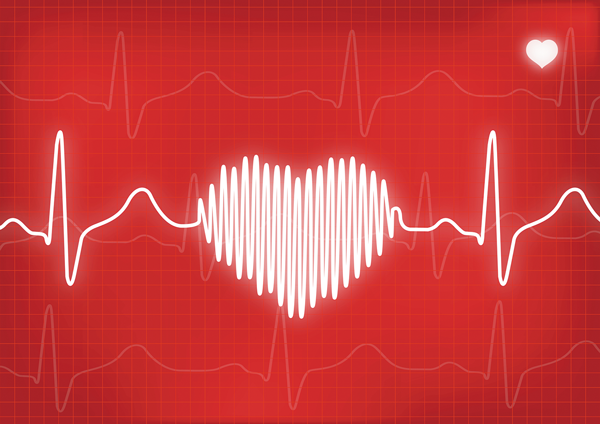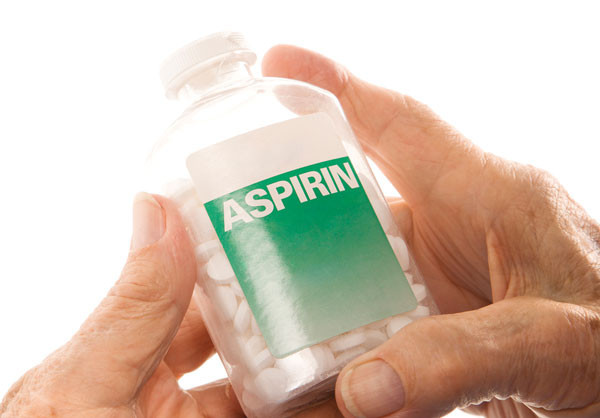
Respiratory health harms often follow flooding: Taking these steps can help

Tips to leverage neuroplasticity to maintain cognitive fitness as you age

Can white noise really help you sleep better?

Celiac disease: Exploring four myths

What is prostatitis and how is it treated?

What is Cushing syndrome?

Exercises to relieve joint pain

Think your child has ADHD? What your pediatrician can do

Foam roller: Could you benefit from this massage tool?

Stepping up activity if winter slowed you down
Heart Attack Archive
Articles
Resuming sex within months of a heart attack linked to longer survival
Research we're watching
Couples sometimes worry about restarting sexual activity after one partner has had a heart attack. But a new study has found that returning to usual levels of sexual activity within a few months of a heart attack is linked to improved survival.
The study, published online Sept. 23, 2020, by the European Journal of Preventive Cardiology, included 495 sexually active people who were hospitalized for a first heart attack in 1992 or 1993. All of them were 65 or younger (the average age was 53) and 90% were men.
Fish oil drug helps shrink plaque in heart arteries
Research we're watching
A drug made from a highly purified form of EPA (an omega-3 fatty acid found in fish) appears to help reduce plaque in the heart's arteries, according to a study published online Aug. 29, 2020, by the European Heart Journal. The findings may explain why the drug, icosapent ethyl (Vascepa), lowers the risk of heart attack and stroke by 26% in people at high risk for those serious problems.
The study included 80 people with fatty plaque in the arteries of the heart (coronary artery disease). Most of them had diabetes and were taking a statin. Their triglycerides were elevated, ranging from 135 to 499 milligrams per deciliter. Half were randomly assigned to take 4 grams of icosapent ethyl daily; the other half received a placebo.
The danger of “silent” heart attacks
About half of all heart attacks are mistaken for less serious problems and can increase your risk of dying from coronary artery disease.
Image: goir/Getty Images
You can have a heart attack and not even know it. A silent heart attack, known as a silent myocardial infarction (SMI), account for 45% of heart attacks and strike men more than women.
They are described as "silent" because when they occur, their symptoms lack the intensity of a classic heart attack, such as extreme chest pain and pressure; stabbing pain in the arm, neck, or jaw; sudden shortness of breath; sweating, and dizziness.
Do you know the signs of a silent heart attack?
As many as half of all heart attacks go unrecognized — and their long-term consequences can be serious.
Image: © hidesy/Getty Images
Most people don't realize that they could have a heart attack without even knowing it. Although these are commonly referred to as "silent" heart attacks, a more accurate term may be "unrecognized" heart attack, says cardiologist Dr. David Morrow, director of the cardiac intensive care unit at Harvard-affiliated Brigham and Women's Hospital.
"Some people do have symptoms, so in that sense, their heart attack is not silent. They just don't recognize the sensations as coming from their heart," he explains. They may think it's just indigestion or muscle pain, when the real cause is actually reduced blood flow to the heart. People may also experience other atypical symptoms, such as nausea or excessive sweating during a heart attack (see "Heart attack symptoms").
How does inflammation increase the risk for heart attacks?
Ask the doctor
Q. My doctor says I'm at risk for a heart attack because a test shows inflammation. I know about high cholesterol and blood pressure, but how does inflammation increase the risk for heart attacks?
A. I can understand why you're puzzled. In medical school I learned that there is a simple road to a heart attack. First, cholesterol starts building up in the wall of a coronary artery carrying blood to the heart muscle. Over many years, the plaque of cholesterol slowly grows bigger. When it grows large enough that the heart can't get the blood it needs to work hard, the heart cries out in pain — chest pain, a condition called angina. Finally, when the plaque grows large enough, it blocks the flow of blood completely, causing a heart attack. It was a beautifully simple explanation.
Does aspirin stop a heart attack?
Ask the doctor
Q. Should I take aspirin if I think I'm having a heart attack, and what kind of aspirin should I take?
A. First, what symptoms indicate you might be having a heart attack? The main symptom is a squeezing, tight sensation in the middle of the chest that can travel up into the jaw and shoulders, and even down the left arm. Along with the pain you may begin to sweat and to feel weak, like you might pass out, and be short of breath. While other conditions besides a heart at-tack can cause similar symptoms, you need to take such symptoms very seriously. First, call 911.
Does "cough CPR" work?
Ask the doctor
Image: © Duckycards/Getty Images
Q. A friend of mine shared a Facebook post about how to survive a heart attack when you're alone. It says that you should cough very forcefully every few seconds until help arrives. Can that actually help?
A. This "advice" has been circulating around the Internet for nearly 20 years. I was reluctant to even address this question out of concern for perpetuating the idea of "cough CPR" or causing undue worry. However, I think it's important to clear up the confusion around this topic.
High calcium score: What’s next?
Ask the doctor
Image: © Tinpixels/Getty Images
Q. I recently got a coronary artery calcium scan and the results showed that I have quite a bit of calcium in my heart arteries (my score was 900). Should I have an angiogram to confirm the results? I don't have any heart-related symptoms, but I'm worried about having a heart attack.
A. That is a very high coronary artery calcium score. But the short answer to your question is no. The main reason to have an angiogram is to locate a narrowed heart artery that is causing chest pain or other symptoms. For the test, a cardiologist injects a dye that is visible on x-rays into the blood vessels of your heart, then takes a series of x-ray images. This is done in preparation for angioplasty, in which a narrowed artery is opened, or as a prelude to referral for coronary artery bypass surgery.
Sex differences in heart disease: A closer look
Heart attack symptoms can differ between men and women, but not as much as you might think.
Thanks to national campaigns to boost awareness, more people now recognize that heart disease is the leading cause of death in women as well as in men. For both sexes, cardiovascular disease is to blame for one of every three deaths in the United States.
Throughout the country, someone has a heart attack — the most common manifestation of this prevalent disease — about every 40 seconds, on average. Maybe you've heard that women are more likely to have "atypical" heart attack symptoms than men. But what does that really mean? A review article in the May 2020 Journal of the American Heart Association offers some perspective.
Taking statins later in life still offers heart benefits
In the journals
Age may not be a factor when it comes to who can benefit from statins. A study published online July 7, 2020, by JAMA found that people who started taking the cholesterol-lowering medication in their mid-70s or later had fewer heart-related problems and lived longer than non-users.
Researchers looked at 326,981 mostly male veterans, ages 75 and older, who were free of cardiovascular disease and did not take statins. Over the next 10 years, more than 57,000 began statin therapy.

Respiratory health harms often follow flooding: Taking these steps can help

Tips to leverage neuroplasticity to maintain cognitive fitness as you age

Can white noise really help you sleep better?

Celiac disease: Exploring four myths

What is prostatitis and how is it treated?

What is Cushing syndrome?

Exercises to relieve joint pain

Think your child has ADHD? What your pediatrician can do

Foam roller: Could you benefit from this massage tool?

Stepping up activity if winter slowed you down
Free Healthbeat Signup
Get the latest in health news delivered to your inbox!
Sign Up











